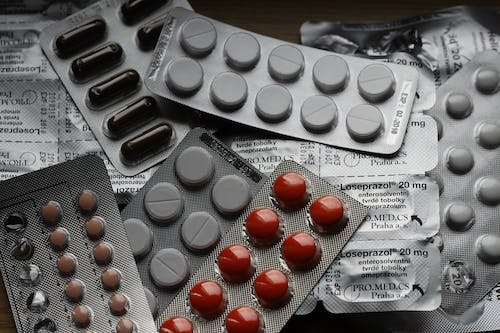Vaginal Yeast Infection vs Bacterial Vaginosis: Differences and Treatment Options
When the vagina gets infected or inflamed, the term is called vaginitis. This infection can be due to two main reasons, yeast or bacteria. Dealing with a vaginal infection can be uncomfortable and painful.
It's important to understand the common differences between Vaginal Yeast Infection vs Bacterial Vaginosis for proper treatment. Bacterial vaginosis is the most common cause of vaginitis, with 40-50% of cases, while vaginal yeast infection is the second most common cause with 20%. Online Doctors for vaginitis can help patients deal with these issues.
While these two conditions may share some common symptoms, it is crucial to understand their differences to receive the appropriate treatment. We at TelMDCare, have online doctors for vaginal infections so you can get treatment from the comfort of your home. So, let's discuss their difference and treatment options.

Causes: Vaginal Yeast Infection vs Bacterial Vaginosis
Vagina Yeast Infection:
Vaginal yeast infection, also called Candidiasis, is caused by a fungus called Candida. This fungus is already present in the vagina, but the problem arises when this fungus overgrows and causes an infection. This may be due to the system imbalance. The fungus may overgrow due to some type of medication intake such as antibiotics, diabetes, pregnancy, using birth control pills, etc.
Bacterial Vaginosis:
Online doctors for vaginal infection agree that just like the presence of the fungus Candida, some bacterias are also present in one's vagina. Bacterial vaginosis is caused by the increase of these bacteria in the vagina due to pH imbalance. This may also happen due to smoking, douching, etc.
Symptoms: Vaginal Yeast Infection vs Bacterial Vaginosis
The symptoms of vaginal yeast infection and bacterial vaginosis are different. It's essential to pay attention to the symptoms of these conditions. If they are mistreated, the problem can get worse.
Vaginal Yeast Infection:
- The discharge is white, odorless, and thick, like cottage cheese.
- There is an uneasy as well as painful feeling
- Itching and redness
- Burning sensation during urination
Bacterial Vaginosis:
- The discharge is thin and milky, with a fishy odor
- An uncomfortable feeling
- Itching but no redness
- Burning sensation during urination
Treatments: Vaginal Yeast Infection vs Bacterial Vaginosis
The treatment options for Vaginal Yeast Infection vs Bacterial Vaginosis differ as well.

Vaginal Yeast Infection:
Vaginal yeast infection can be treated using creams, ointments, and oral tablets. Antifungal medications like Miconazole are used to treat Vaginal yeast infections. It stops the growth of the infection-causing fungi. It usually takes 3-7 days for the infection to go away.
Apart from this, Fluconazole, another antifungal medicine, is also used for serious vaginal fungal infections.
Moreover, some over-the-counter medications like Monistat can be used to treat vaginal yeast infections. It's gentle on the skin in the surrounding area.
Bacterial Vaginosis:
Metronidazole is an antibiotic used to treat bacterial infections. It is used for reproductive system infections. It stops the growth of bacteria, curing the infection.
Another medicine used to treat vaginal infections is Clindamycin, an antibiotic, and Tinidazole, an antiprotozoal.
Get In Touch With Telmdcare's Virtual Doctor To Treat Vaginal Infection
Understanding the differences between vaginal yeast infection and bacterial vaginosis is essential for proper care. TelMDCare is a reputable telemedicine provider that offers vaginal infection treatment online. We have virtual doctors to treat vaginal infections, who will understand your specific situation and provide appropriate treatment. So, contact us today to treat vaginal yeast infection or bacterial vaginosis.